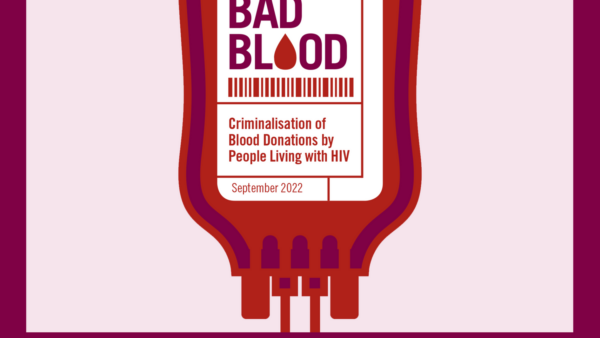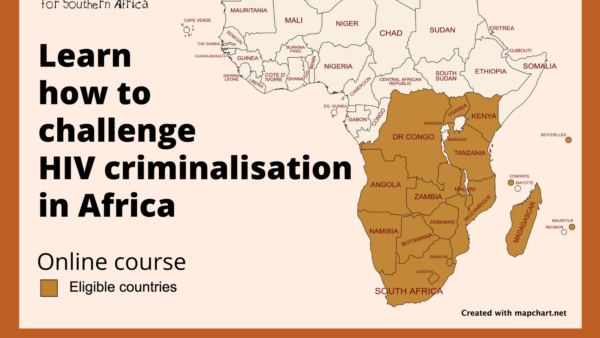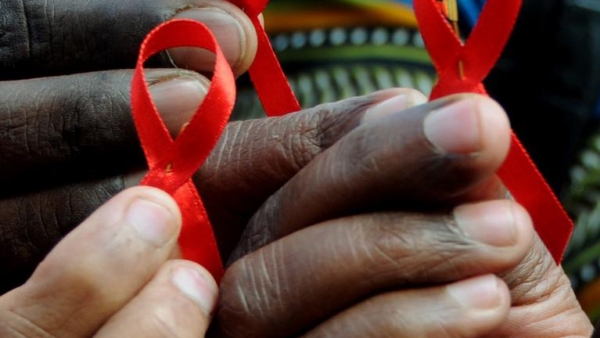Overview
Angola maintains both an HIV-specific statute, as well as a range of provisions in the Penal Code – which came into effect in February 2021 – that could criminalise HIV ‘exposure’, non-disclosure, and transmission.
Article 205 criminalises non-disclosure and transmission of ‘life-threatening sexually transmitted viral or bacterial diseases’. It makes it an offence for anyone who, knowing that they are living with such a disease, to have sexual intercourse with someone without informing them of their status. This provision carries a penalty of up to two years’ imprisonment or a fine. Where transmission occurs, the penalty is two to four years’ imprisonment. Where the accused has the intention of transmitting the disease, the punishment is four to six years where there is no transmission, and 10 to 15 years’ where transmission takes place. Where transmission takes place by any other means, the same penalty (10 to 15 years’ imprisonment) applies.
Similarly, Article 206 criminalises ‘exposure’ and transmission of ‘serious diseases’. This provision makes it an offence to, with intent to transmit such a disease that they are living with, to commit an act ‘likely to infect another person’. The penalty is up to three years’ imprisonment and a fine, or six to 10 years’ if transmission occurs.
Additionally, Article 287 criminalises anyone who ‘propagates a contagious disease and thereby creates an actual danger to the life or physical integrity of another person’, with a penalty of two to eight years’ imprisonment, or lower in cases of negligence.
Although these provisions do not define the relevant diseases and therefore do not explicitly include HIV, it is likely that cases of alleged HIV ‘exposure’, non-disclosure, and transmission could be prosecuted under these offences.
Furthermore, Article 199(2) provides for aggravated sentences (by one quarter) for a number of sexual offences, including sexual assault, sexual harassment, and sexual abuse of minors, where the perpetrator is living with a sexually transmitted disease ‘likely to endanger the life of the victim’. The penalties are increased further where committed against minors and transmission takes place.
As well as the Penal Code, Angola maintains an HIV-specific statute, Law 8/04 on HIV and AIDS (2004), which explicitly criminalises HIV transmission and blood donations, as well as imposing duties on those living with HIV. Due to the introduction of the new Penal Code, the corresponding offences in the former Penal Code from which the penalties in the 2004 HIV law are derived no longer exist, so it is not clear whether these penalties would continue to apply. As of November 2019 this law has been under review, and in August 2021 the government announced a planned revision of the law. In May 2024, a workshop to discuss this revision was attended by MPs and civil society. As of February 2025, the law was reported to be in the Angolan Parliament.
Section 14 of the current law sets out a range of duties on people living with HIV, which include adopting behaviours to limit the possibility of HIV transmission, including wearing condoms during all ‘sexual relations’, and disclosing HIV status to partners and health professionals. The penalties for failure to abide by these duties are not defined in section 14.
Under section 15, intentional transmission of HIV is defined as an offence prosecutable under section 353 of the former Penal Code, which carried a penalty of up to 24 years’ imprisonment. Similarly, transmission through negligence, carelessness, or failure to observe regulations, is prosecutable under section 368 of the former Penal Code, which carried a penalty of up to two years’ imprisonment.
Under section 24, blood donation by people living with HIV is prohibited and transmission through this means is also punishable under section 353 of the former Penal Code (see our report, Bad Blood, for a global analysis of the criminalisation of blood donations).
We are aware of four cases of HIV criminalisation in Angola, however details are extremely sparse due to a lack of accessibility of case reports.
Two cases were reported in 2007/8 although little is known about the circumstances except that the Angola Press reported ‘the police got acquainted with these cases after various conflicts between couples’.
A 2020 briefing paper by the Southern African Legal Centre cites two additional cases. In the first, a man was reportedly sentenced in February 2020 to 22 years and six months’ imprisonment under section 15 of the 2004 HIV law. Media reports suggest the man was accused of ‘financially luring’ and having unprotected sex with three young women. The other case, reported in the same month, involved a man being sentenced to 24 years’ imprisonment for alleged intentional transmission to two women.
Laws
Law 8/04 on HIV and AIDS
Section 14. Duties
Persons infected with HIV shall:
a) adopt a responsible sexual behaviour;
b) adopt habits and behaviour which limits the possibility of infecting others;
c) use condoms when having sexual relations;
d) inform the persons with whom they have or intend to have sexual relations of their status;
e) inform the heath personnel who attend to them of their situation so that services are administered adequately and appropriate biosecurity measures are taken;
f) inform their spouses or sexual partners about their status.
Section 15. Transmitting
1. The intentional transmission of HIV constitutes a crime and is punishable in terms of section 353 of the Penal Code.
2. A person who, through negligence, inconsideration or failure to observe regulations, infects another, is punished in terms of section 368 of the Penal Code.
Section 24. Blood and organ donation
1. Persons infected with HIV cannot donate blood, breast milk, organs or tissue for therapeutic use, except in the scope of experimental research.
2. A violation of the above provision is punishable in terms subsection 1 of section 15 of the present Act.
Penal Code
Article 199. Aggravation
(…)
2. The penalties provided for in Articles 182 to 187, 192 to 194 and 197 shall be increased by one quarter in their minimum and maximum limits, whenever the perpetrator is the carrier of a sexually transmitted disease likely to endanger the life of the victim.
Article 205. Contagion of sexually transmitted diseases
1. Whoever, knowing that he or she is the carrier of a life-threatening sexually transmitted viral or bacterial disease, maintains sexual intercourse with another person without previously informing that person of the fact, shall be punished by a prison sentence of up to two years or a fine of up to 240 days.
2. If the victim is contaminated or infected, the penalty is imprisonment for 2 to 4 years.
3. If the agent has acted with the intention of contaminating the victim, without achieving this, the penalty of imprisonment is 4 to 6 years.
4. If the perpetrator has acted with the intention of contaminating the victim and actually contaminates the victim, the penalty of imprisonment is 10 to 15 years.
5. The penalty provided for in the preceding paragraph is applicable to whoever intentionally contaminates another person by any other means.
6. The criminal procedure shall depend upon complaint.
Article 206. Contagion of serious disease
1. Whoever, with intent to transmit a serious disease that he or she is suffering from, commits an act likely to infect another person shall be punished with a prison sentence of up to three years or with a fine of up to 360 days.
2. If the disease is transmitted, the imprisonment sentence shall be between 6 and 10 years.
Article 287. Spread of contagious disease
1. Whoever propagates a contagious disease and thereby creates an actual danger to the life or physical integrity of another person shall be punished by imprisonment for a term of between two and eight years.
2. If the danger is caused by negligence of the agent, the penalty shall be imprisonment for up to 3 years.
3. If the conduct is due to negligence, the penalty is imprisonment for up to 2 years or a fine of up to 240 days.
Further resources
In November 2020, The Southern Africa Litigation Centre, ARASA and HIV Justice Worldwide put together a discussion document on the Criminalisation of HIV in Angola. This brief has been prepared for Civil Society Organisations (CSOs) working on HIV and human rights in Angola, to contribute to discussions around criminalisation of HIV in the country. It sets out concerns regarding the criminalisation of HIV transmission, exposure and non-disclosure in general, based on compelling scientific developments and the position of international human rights and public health experts. It further examines the relevant laws and their application in Angola, provides alternatives to criminalisation and concludes with specific recommendations regarding the reform of such laws in the country.
Também disponivel em Português/Also available in Postuguese:
https://www.southernafricalitigationcentre.org/wp-content/uploads/2020/12/SALC-HIV-Criminalisation-report-Portuguese.pdf
Acknowledgements
Our thanks to UNAIDS and ARASA for their research assistance to confirm current relevant legislation.
HIV Justice Network's Positive Destinations
Visit the Angola page on Positive Destinations for information on regulations that restrict entry, stay, and residency based on HIV-positive status, as well as access to HIV treatment for non-nationals.


